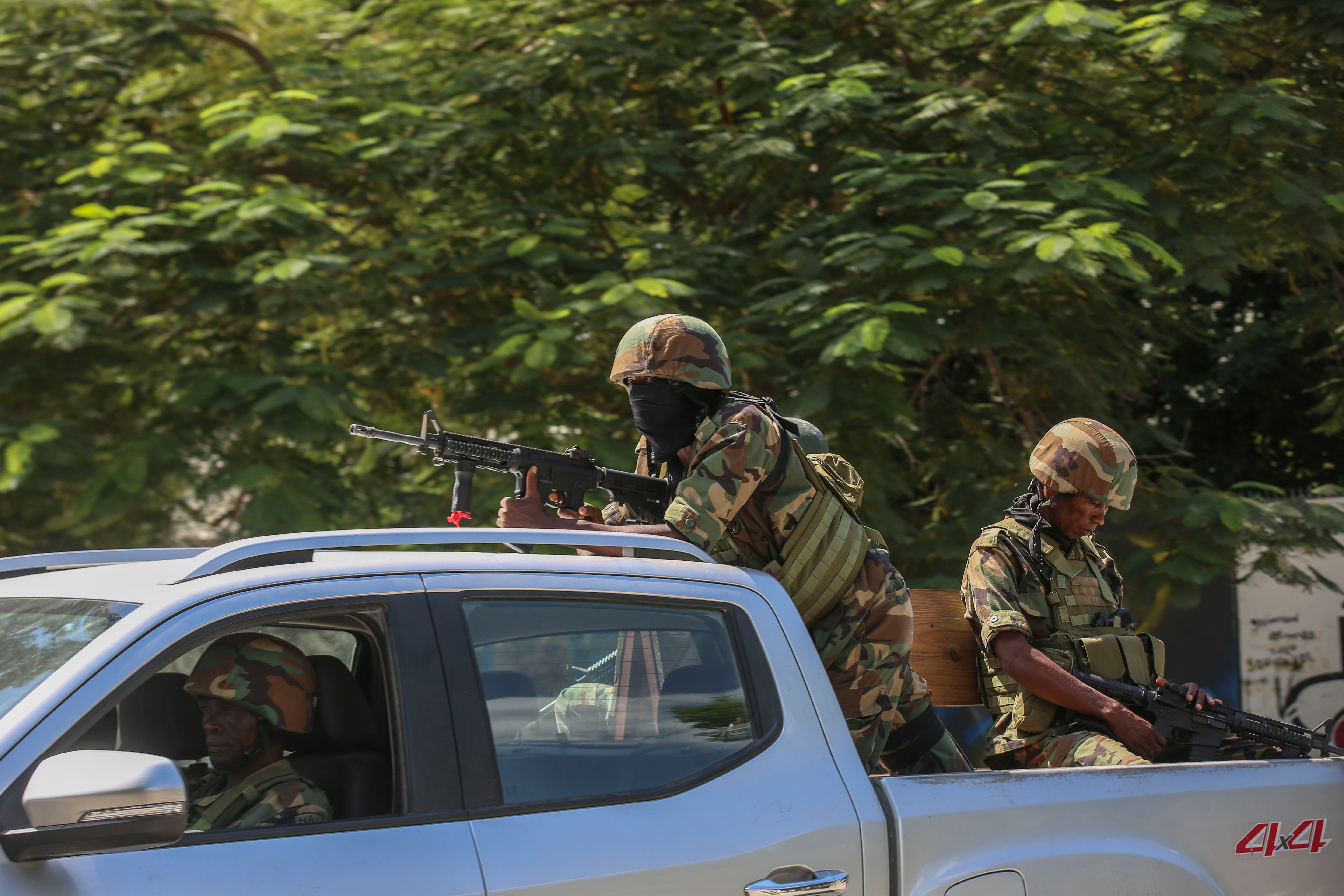Haitian gangs escalate violence and expand attacks outside the capital, top UN official says
The top U.N. official in Haiti says gangs have escalated their violence and expanded operations outside the capital, even attacking small boats and kidnapping personnel from cargo shipping companies

Your support helps us to tell the story
From reproductive rights to climate change to Big Tech, The Independent is on the ground when the story is developing. Whether it's investigating the financials of Elon Musk's pro-Trump PAC or producing our latest documentary, 'The A Word', which shines a light on the American women fighting for reproductive rights, we know how important it is to parse out the facts from the messaging.
At such a critical moment in US history, we need reporters on the ground. Your donation allows us to keep sending journalists to speak to both sides of the story.
The Independent is trusted by Americans across the entire political spectrum. And unlike many other quality news outlets, we choose not to lock Americans out of our reporting and analysis with paywalls. We believe quality journalism should be available to everyone, paid for by those who can afford it.
Your support makes all the difference.Gangs in Haiti have escalated their violence and expanded operations outside the capital, even attacking small boats and kidnapping personnel from cargo shipping companies, the top U.N. official in the country said Tuesday.
Special representative Maria Isabel Salvador told the U.N. Security Council that the situation has worsened in the last three months, with more than 700,000 people now displaced in the country and the political process facing “significant challenges.”
She said Haitians across the country continue to suffer as gang activities escalate and expand, “spreading terror and fear, overwhelming the national security apparatus” and worsening an “extremely dire” humanitarian situation.
Gangs are also attacking small boats carrying Haitians from the capital, Port-au-Prince, to other areas of the country, and they have kidnapped personnel from international cargo freight companies, forcing them to suspend service to Haiti, Salvador said.
Catherine Russell, executive director of the U.N. children’s agency, UNICEF, told the council the “catastrophic situation” for Haiti’s children that she reported six months ago has deteriorated further. She said over 360,000 of those currently displaced are children.
“Armed groups are regularly committing grave rights violations against children including killing and maiming,” she said. “And so far this year, we have seen a staggering increase in reported incidents of sexual violence against women and children, including gender-based violence.”
Russell said gangs are also recruiting children and using them in their operations.
“We estimate that children account for 30% to 50% of armed group members,” she said. “They are being used as informants, cooks, and sex slaves, and they are being forced to perpetrate armed violence themselves.”
The power of gangs in Haiti has grown since the 2021 assassination of President Jovenel Moïse, and they are now estimated to control up to 80% of the capital, Port-au-Prince.
The surge in killings, rapes and kidnappings has led to a violent uprising by civilian vigilante groups.
The Security Council voted on Sept. 30 to extend the mandate of the Kenya-led multinational force trying to help Haiti’s national police tackle the gang violence.
The force was supposed to have 2,500 international police but the U.N.’s Salvador said just around 430 are deployed, some 400 from Kenya and the rest from the Bahamas, Belize and Jamaica. Earlier this month, Kenya’s President William Ruto said another 600-strong contingent would be sent to Haiti in November.
Salvador, who heads the U.N. political mission in Haiti, said the U.N. trust fund that finances the multinational force and relies on voluntary contributions, “remains critically under-resourced, which could impact deployment and impede it from carrying out its tasks in support of the Haitian National Police.”
On the political front, Leslie Voltaire was sworn is as the new leader of Haiti’s transitional presidential council earlier this month, in the fallout of serious corruption allegations against three of its members.
The council was created this year after targeted gang attacks forced Haiti’s former prime minister to resign, leaving the country without a leader. The council works alongside new Prime Minister Garry Conille and is responsible for helping run the country and organizing general elections by February 2026.
Salvador told the Security Council that despite initial political advances, tensions between the council and the government have increased, creating growing frustration among Haitians and eroding trust in the current political process.
She said the U.N. mission is working “to strengthen collaboration within the two-headed executive, urging them to set aside differences and focus on addressing insecurity, governance reforms, and electoral preparations.”
Meanwhile, nearly half the population doesn’t have enough to eat and gang control over key access roads has severely affected the delivery of humanitarian aid and essential services, Salvador said.
“As a result, prices have increased, and many communities are on the verge of collapse due to food shortages and the ongoing violence that has left large swathes of agricultural land unproductive,” she said.